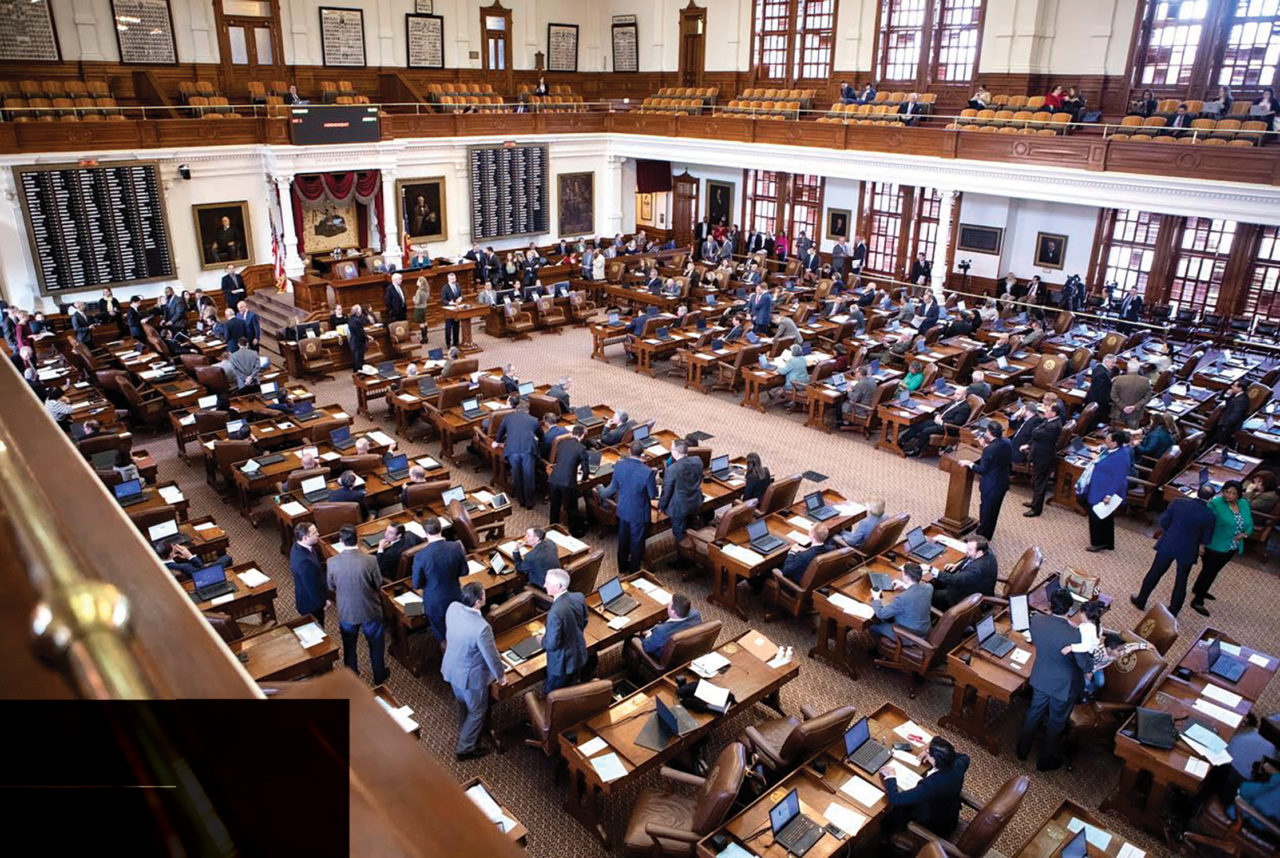 By Allison D. Shelton and Beth Anne Jackson, Brown & Fortunato, P.C.
By Allison D. Shelton and Beth Anne Jackson, Brown & Fortunato, P.C.
On May 27, 2019, the Texas 86th Legislature ended its regular session that began on January 8, 2019. After five months of committee proceedings, debates, and votes, the 86th Legislature passed 484 bills. Several of the bills that were signed by Governor Greg Abbott will impact the health care industry.
Two bills, Senate Bill (SB) 749 and SB 1264, refine processes established by previous legislatur es. The 85th Legislature had adopted amendments to the Insurance Code that required out-of-network emergency providers, including hospitals, to participate in mediation with a patient’s insurer in the event the patient received a balance bill exceeding $500 and the patient disputed the charge. In the recent legislative session, the 86th Legislature took steps to remove the patient from the billing dispute and mediation process.
es. The 85th Legislature had adopted amendments to the Insurance Code that required out-of-network emergency providers, including hospitals, to participate in mediation with a patient’s insurer in the event the patient received a balance bill exceeding $500 and the patient disputed the charge. In the recent legislative session, the 86th Legislature took steps to remove the patient from the billing dispute and mediation process.
SB 1264 prohibits balance billing for services that a state-regulated health benefit plan must cover out-of-network (e.g., emergency care). For payment disputes relating to such services, a hospital may require the insurer to participate in the mediation process established under the Insurance Code. Thereafter, a civil suit may be filed if an agreement is not reached at mediation. The bill also establishes an arbitration process for payment disputes involving non-facility providers (i.e., physicians). The new requirements apply to services provided on or after January 1, 2020.
SB 749 refines the process for neonatal and maternal designations that was first developed by the 83rd Legislature. Chapter 241 of the Texas Health and Safety Code currently charges the Texas Health and Human Services Commission and the Texas Department of State Health Services with developing and assigning levels of care for neonatal and maternal care provided by hospitals. SB 749 adopts certain procedural rights for hospitals in the designation process. The new requirements for level of care designations go into effect on September 1, 2019. Additionally, the bill requires that a hospital have a maternal level of care designation by September 1, 2021, to qualify for Medicaid reimbursement.
SB 749 provides that a hospital is entitled to a third-party survey to appeal a level of care designation. Additionally, the bill outlines the appeal process and permits hospitals to request waivers of certain requirements for a level of care designation. For hospitals applying for a Level I or Level II designation, the bill provides that the hospital may meet requirements relating to obstetrics or gynecological physician by granting privileges to a family physician with experience in obstetrics and by developing a plan to respond to emergencies outside the scope of the physician’s privileges. Finally, the bill provides that services of an on-call telemedicine physician can be used to meet certain requirements of the level of care designation.
The value of telemedicine was recognized in another bill as well. House Bill (HB) 871 permits hospitals located in a rural county with less than 30,000 residents to utilize telemedicine to satisfy the physician requirements for a Level IV trauma designation.
The 86th Legislature passed a few bills that will directly impact the operations of hospitals. For example, HB 2410 modifies the process through which nurses may request safe harbor peer review. Currently, nurses must complete a written form in order to request safe harbor peer review. Beginning on September 1, 2019, a nurse may make an oral request to his or her supervisor when immediate patient care needs prevent the nurse from completing the written form.
SB 384 is another bill that will impact the operations of Texas hospitals. Hospitals are required to report information relating to certain health care associated infections (HAIs) to both the state and the Centers for Medicare and Medicaid Services (CMS). Historically, the reports required by the state have differed from the HAI reports required by CMS. SB 384 aligns state law with CMS’s requirements. Specifically, this bill requires all hospitals, including those that are not enrolled in Medicare, to report to the state any HAI that must be reported to CMS. The new reporting requirements will apply to reports made on or after January 1, 2020.
Another bill of interest for both physicians and hospitals is SB 752. The need for liability protection for volunteer health care providers became apparent in the wake of Hurricane Harvey. According to the legislative history for SB 752, the lack of statutory protection “discouraged qualified volunteers from participating in the rescue and recovery efforts.” SB 752 provides protection from liability to volunteer health care providers and facilities, including hospitals, for certain services rendered in response to a manmade or natural disaster. This bill goes into effect on September 1, 2019.
Each legislative session results in new laws that affect hospitals and other providers. This legislative session was no different. Administrators should review new bills passed by the 86th Legislature and assess the impact of such bills on their institution’s legal obligations, budget, and operations.


